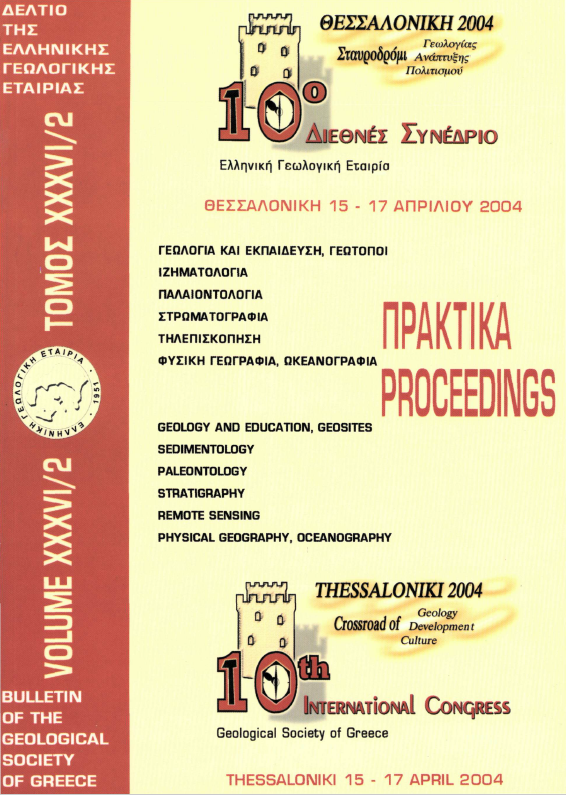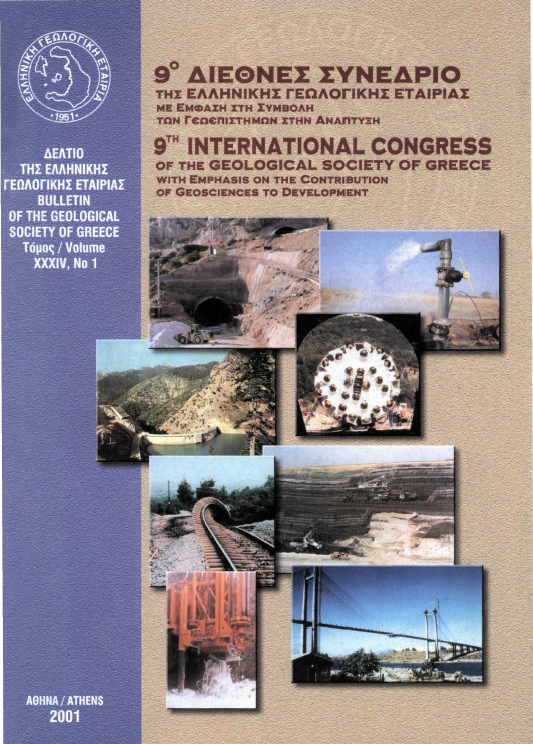ENGINEERING GEOLOGY PROBLEMS OF THE COASTAL ZONE AROUND ANCIENT ABDERA, XANTHI, N. GREECE.
Résumé
The main engineering geology problems of the coastal zone around Ancient Abdera together with their causes are examined in this paper. The area studied extends from the coastal settlement of Mirodatc» up to the coastal settlement of Mandra, Xanhti prefecture, N. Greece. A geomorphology classification of coasts of the area is presented and maps of the ground inclination and geotechnical zone are constructed. The main geotechnical problems of the area appear to be: inundation of much of the area during winter period; foundation settlement; shallow water table; pollution of the groundwater and arbitrary construction in environmentally protected zones. The area of study gets special interest due to its continues human habitation since the 8 th B.C. century. As it has come but from archaeological and sentimentology studies, the Abdera bay has suffered (long shore bar) and land (torrents, load) results in quick filling in the ancient harbors, making them in navigable and forcing the habitants to more their harborworks further south to deeper sea water.
Article Details
- Comment citer
-
Δελημάνη Π., & Ξειδάκης Γ. (2018). ENGINEERING GEOLOGY PROBLEMS OF THE COASTAL ZONE AROUND ANCIENT ABDERA, XANTHI, N. GREECE. Bulletin of the Geological Society of Greece, 36(2), 998–1007. https://doi.org/10.12681/bgsg.16902
- Rubrique
- Marine Geology and Oceanography

Ce travail est disponible sous licence Creative Commons Attribution - Pas d’Utilisation Commerciale 4.0 International.
Authors who publish with this journal agree to the following terms:
Authors retain copyright and grant the journal right of first publication with the work simultaneously licensed under a Creative Commons Attribution Non-Commercial License that allows others to share the work with an acknowledgement of the work's authorship and initial publication in this journal.
Authors are able to enter into separate, additional contractual arrangements for the non-exclusive distribution of the journal's published version of the work (e.g. post it to an institutional repository or publish it in a book), with an acknowledgement of its initial publication in this journal. Authors are permitted and encouraged to post their work online (preferably in institutional repositories or on their website) prior to and during the submission process, as it can lead to productive exchanges, as well as earlier and greater citation of published work.




